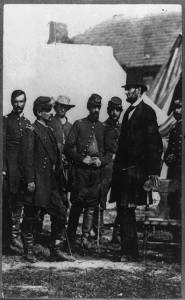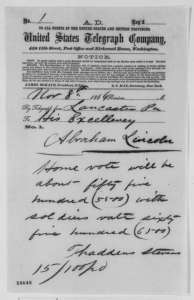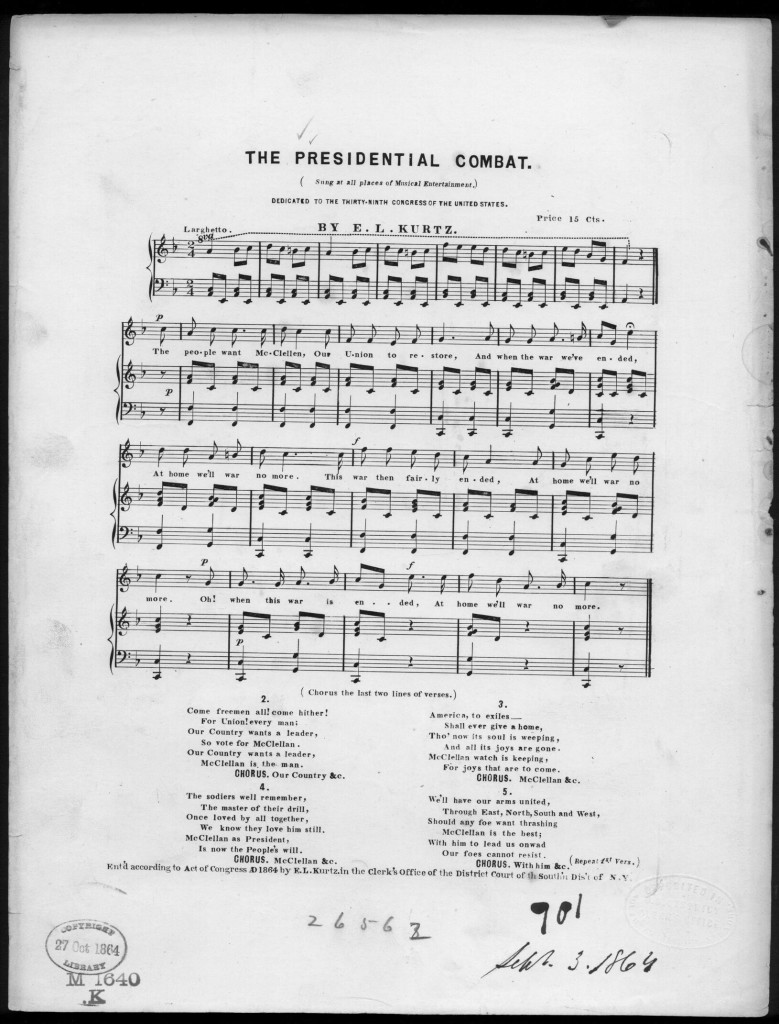150 years ago today President Lincoln accepted General McClellan’s Election Day resignation from the army. The Atlas & Argus of Albany New York was a Democratic party newspaper (according to the November 11, 1864 issue of The New-York Times the Argus was still claiming General McClellan won New York State as late as November 10th) that saw the resignation as an example of the General’s honorable character – unlike the President’s.
From a Seneca County, New York newspaper in November 1864:
Gen. McClellan’s Resignation.
The resignation of General McClellan, which was made on the 8th inst., has been accepted. It is said in addition, in quarters accustomed to speak for the President, that Mr. Lincoln intended to remove him, and would have done so, if he had not been thus anticipated by the voluntary act of the General.
If so, Gen. MCCLELLAN, who has before shielded the Administration from disaster, now saves it from dishonor. It may be said that President LINCOLN might have been left to crown his conduct towards the General, and his action during the campaign by this last act of indignity. But though this would have revealed the full malignity of a base nature in its hour of triumph, yet the spectacle would have still further dishonored his country, and we are glad that we are spared it. – Atlas and Argus.
John Hay’s diary entry [1] for Election Day, November 8, 1864 provides a different view of President Lincoln’s character. Early in the rainy day Mr. Lincoln reflected:
“It is a little singular that I, who am not a vindicthe [vindictive?] man, should have always been before the people for election in canvasses marked for their bitterness; always but once; when I came to Congress it was a quiet time. But always besides that the contests ill [in?] which I have been prominent have been marked with great rancor.”
About 7 PM Mr. Lincoln and aides splashed through the rainy night over to the War Department to receive the telegraphed election returns. Secretary of the Navy Welles and and Assistant Secretary Fox were vengefully happy over some of the results. The President remarked:
“You have more of that feeling of personal resentment than I,” said Lincoln. “Perhaps I may have too little of it, but I never thought it paid. A man has not time to spend half his life in quarrels. If any man ceases to attack me, I never remember the past against him. …”
The group had a late meal:
Towards midnight we had supper, provided by Eckert. The President went awkwardly and hospitably to work shoveling out the fried oysters. He was most agreeable and genial all evening in fact.
- [1]Commager, Henry Steele and Erik Bruun, eds. The Civil War Archive. New York: Black Dog and Levanthal Publishers, 2000. Print. pages 749-751. ↩



